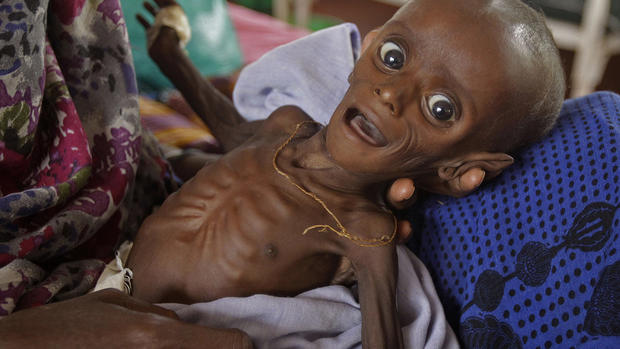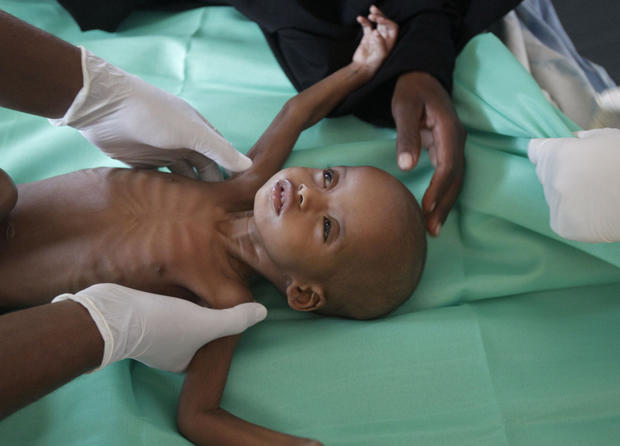Famine relief must "scale up" efforts: UNICEF
Even for a continent sadly accustomed to famine and misfortune, the situation in eastern Africa is dire.
Close to 11 million children and families are suffering from the effects of the worst drought in 60 years. Thousands are fleeing Somalia on foot, leaving behind a nation plagued by malnutrition, disease and poverty.
Many of the refugees find their way to the Dadaab camp in Kenya, the world's largest refugee camp, housing some 380,000 people - nearly four times its intended capacity.
In Somalia, the first shipment of food was delivered Wednesday to Mogadishu, the first shipment since the official declaration of a famine just over a week ago. But the U.N. said it cannot get aid to more than two million people who are unable to flee the country's south - territories controlled by rebels linked to al Qaeda and where some of the most desperate can be found.
AU forces gain ground against Somali militants
Africa famine experts: 800,000 children may die
Speaking to CBS' "The Early Show" from the Dadaab refugee camp, UNICEF spokesperson Christopher Tidey said for him it is particularly difficult to see the children suffer, particularly new arrivals.
"A lot of the children are battling malnutrition, and to see that up close, it's tough," he told anchor Erica Hill. "These kids have been through a lot, there's no question about that, and they're going to need a lot of time and help to recover."
Despite the influx of hundreds of refugees every day, Tidey said he was confident they would not be forced to turn anyone away.
"No, we're definitely not at that point and I don't expect that we ever will be," he said. "The fact of the matter is that these camps have been here for going on two decades, so we do have the infrastructure here to provide the medical services these children need.
"What we need to do now, given the rate of the influx, is we need to scale up our efforts, so that includes procuring more vaccines, and getting help from international donors to make sure we have the supplies we need to give them the care."
Tidey said their biggest challenge is to prevent outbreaks of disease at the camp.
"Obviously children that are suffering from malnutrition, they tend to have compromised immune systems, and that's just ripe ground for an outbreak of an opportunistic disease like measles or polio or pneumonia," he said. "We've just launched an emergency vaccination campaign for children in the host communities and also in the camps to get them vaccinated against measles and polio as quickly as possible."Many of the children at Dadaab were born at the camp to refugees who have fled war-torn Somalia.
"Ultimately what we try to provide them with [are] the services they need here, so we're supporting schools in the camps that we're helping kids to get an education, we're providing them with medical services and also the opportunity to engage in recreational activities," Tidey said. "So for as long as they're here we are working to make sure they have what they need to live quality lives."
How to help:
Donate: UNICEF
Donate: Save the Children

